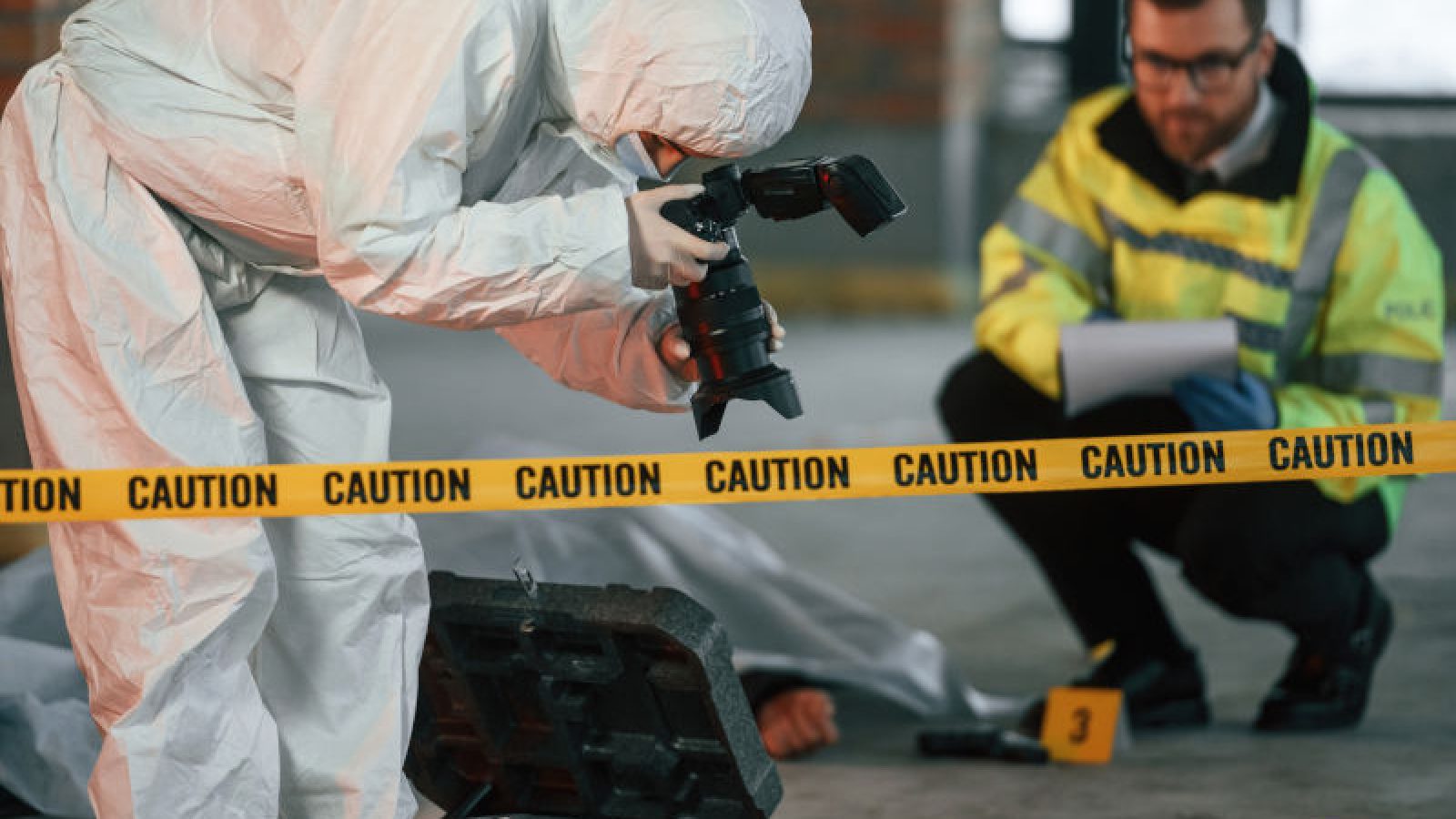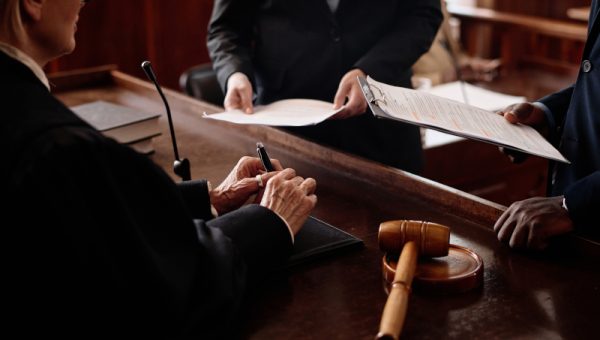Navigating the legal landscape when charged with a violent crime can be daunting. The situation is often filled with uncertainty, fear, and stress. It’s a path no one wishes to be on, but should it occur, understanding the legal implications and processes becomes crucial.
In Queensland, violent crimes encompass a diverse range of offences, including assault, domestic violence, sexual offences, and manslaughter and murder, each carrying substantial legal consequences. These offences are treated with the utmost severity in the courts and can lead to profound personal, professional, and societal impacts for those involved. Knowing what constitutes these crimes, their legal ramifications, your rights as an accused, and the processes that follow are pivotal in building a robust defence.
This comprehensive guide aims to provide an overview of violent crimes in Queensland, focusing on the legal processes, rights of the accused, potential consequences, and means to seek appropriate legal representation. It provides valuable insights into the categories of violent crimes, the investigation and court proceedings, sentencing and penalties, and the resources available for legal assistance.
Understanding the legal landscape can make a significant difference in the outcome of a case. We hope this guide provides a helpful foundation for navigating these challenging circumstances. Remember, when it comes to law, knowledge is power, and we aim to equip you with that power.
Categories of Violent Crimes in Queensland
Assault
Assault is one of the most common violent crimes in Queensland and the nature and severity of these offences can vary considerably. From a legal perspective, ‘assault’ refers to any intentional physical contact or threat thereof, which is neither consented to nor legally justified.
Definition and Types
In Queensland, assault can be broadly divided into three key categories, each with its specific definitions and legal implications:
- Common Assault: This is the most basic form of assault. It occurs when a person intentionally applies force to another person without their consent or threatens to apply such force. No actual injury is required for a charge of common assault. It is enough that the complainant believes the offender has the ability to carry out the threat. Common examples include slapping, pushing, or an act that results in fear of immediate violence. If convicted, the maximum penalty for common assault is 3 years imprisonment.
- Assault Occasioning Bodily Harm (AOBH): This offence is more serious than common assault, and occurs when a person is assaulted and suffers bodily harm as a result. ‘Bodily harm’ includes any bodily injury that interferes with health or comfort. It covers a wide range of injuries, from minor injuries such as scratches and bruises, to more severe injuries like broken bones. If convicted, the maximum penalty is 7 years imprisonment. However, if the offender is or pretends to be armed with a dangerous weapon, or is in company with one or more other persons, the maximum penalty increases to 10 years imprisonment.
- Grievous Bodily Harm (GBH): This is the most serious category of assault and involves causing ‘grievous bodily harm’ to another person. The term ‘grievous bodily harm’ refers to very serious injuries such as life-threatening injuries, permanent disfigurement, or the loss of a significant part of the body. The injury must be ‘grievous’, that is, more than merely transient or trifling. In Queensland, GBH is considered a crime, and if convicted, the offender can face a maximum penalty of 14 years imprisonment.
Each of these offences reflects a varying degree of harm caused, and it is important to note that the penalties can be significantly impacted by aggravating factors. These factors might include the offender’s prior criminal history, the vulnerability of the complainant, or if the assault involved the use of weapons. Understanding these nuances is crucial in presenting an effective defence in court. If you have been charged with any form of assault, it is imperative to seek legal representation immediately to help you navigate these complexities.
Domestic Violence
Domestic violence is a serious issue in Queensland and carries significant legal consequences. It’s not just about physical harm – it encompasses a variety of behaviours designed to control, intimidate, or cause fear to a partner, family member, or anyone within a domestic setting.
Definition
In Queensland, domestic violence is defined under the Domestic and Family Violence Protection Act 2012. It includes any of the following behaviours committed by a person against another person with whom he/she is in a relevant relationship:
- Physical or sexual abuse
- Emotional or psychological abuse
- Economic abuse
- Threatening behaviour
- Coercive behaviour
- Controlling or dominating behaviour that causes the person to fear for their safety or wellbeing, or that of someone else.
Notably, domestic violence is not limited to violence between spouses or intimate partners. It can also occur between family members, relatives, or individuals in a caregiver or guardianship role.
Forms of Domestic Violence
As the definition suggests, domestic violence can take many forms:
- Physical Abuse: This includes direct acts of violence, such as hitting, pushing, or slapping, as well as indirect physical harm, like damaging property or threatening to harm pets.
- Sexual Abuse: Any non-consensual sexual act or attempt to obtain a sexual act is considered sexual abuse. This can include sexual assault, sexual harassment, or using sexually degrading language.
- Emotional or Psychological Abuse: This includes actions designed to control or manipulate someone through fear, such as stalking, intimidation, or threats of harm. It also covers isolating a person from their family and friends, or making them feel worthless or alone.
- Economic Abuse: This involves controlling a person’s financial resources without their consent, such as withholding money, preventing them from working, or taking control of their assets and income.
- Threats or Coercion: These are actions that make a person fear for their safety, such as threats of physical harm, death, or abuse. Coercion refers to the use of force or intimidation to make a person do something they do not want to do.
Domestic and Family Violence Protection Act 2012
The Domestic and Family Violence Protection Act 2012 aims to provide safety and protection for victims of domestic violence. It provides for Domestic Violence Orders (DVOs) to be made to prevent future acts of domestic violence.
Contravening a Domestic Violence Order is a serious offence in Queensland. A person can contravene an order in many ways, including but not limited to, no-contact breaches, physical violence, threats, intimidation, or stalking. The maximum penalty for a breach of a DVO is three years imprisonment, or if there is an aggravating factor involved, the maximum penalty is five years imprisonment.
In situations involving domestic violence, it is crucial to understand your rights and obligations under the law. If you are charged with a domestic violence offence, securing professional legal representation can provide you with the necessary guidance and support.
Sexual Offences
In Queensland, sexual offences encompass a wide range of unlawful activities. Each carries serious penalties and lifelong implications, including registration as a sex offender.
Definition and Types
Sexual offences cover acts ranging from indecent exposure to sexual assault and rape. Here are some key types of sexual offences:
- Sexual Assault: This involves any unwanted or forced sexual activity where consent is not obtained or freely given. It could range from unwanted touching to more serious acts.
- Rape: In Queensland, rape is defined as the penetration of another person without their consent. This includes penetration of any bodily part or an object into the vagina or anus.
- Indecent Treatment of Children: This offence involves indecent dealing with, or exposure to, a child under 16 years old. This includes taking explicit photographs, exposing the child to explicit acts, or engaging the child in explicit acts.
- Unlawful Carnal Knowledge: Also known as ‘statutory rape’, this offence involves engaging in sexual intercourse with a person under the age of consent, which is 16 in Queensland. The offender can be charged regardless of whether the minor agreed to the act or not.
- Maintaining a Sexual Relationship with a Child: This offence refers to an adult having an ongoing sexual relationship with a child under 16.
- Child Grooming: This offence involves an adult communicating with a child or their guardian with the intent to procure the child for sexual activity. This can happen online or offline.
Consent and Age of Consent in Queensland
Consent plays a critical role in sexual offence law. Consent must be freely and voluntarily given by a person with the cognitive capacity to do so. It’s important to note that silence or lack of physical resistance does not imply consent.
The age of consent in Queensland is 16 years old. This means that engaging in sexual activity with someone below this age can lead to charges of unlawful carnal knowledge, or other offences, even if the younger person ‘agreed’ to the act.
If you are charged with a sexual offence, it’s critical to consult with a defence lawyer. Penalties for these crimes can be severe and may include imprisonment, fines, and mandatory inclusion in the sex offender register. These cases are complex and require an intimate understanding of the law, as well as the ability to navigate sensitive situations with tact and care.
Homicide
In Queensland law, homicides are classified primarily as either murder or manslaughter. Both crimes involve the act of causing another person’s death, but they have different elements and legal consequences.
Murder
In Queensland, under section 302 of the Criminal Code Act 1899 (Qld), murder is defined as unlawfully killing another person with an intent to kill or cause grievous bodily harm. The act can also be classified as murder if death occurs during the commission of another crime that is violent or poses a threat to human life.
The essential elements of murder that the prosecution must prove beyond reasonable doubt are:
- Causation: The accused caused the deceased’s death.
- Mens Rea (guilty mind): The accused intended to kill the deceased or cause grievous bodily harm, or death occurred during the commission of a crime.
A further key concept in the understanding of murder charges is ‘recklessness’. If it can be shown that the accused was reckless as to causing the death of the person, this too can be considered murder.
Penalties for murder in Queensland are severe. Under Queensland law, a conviction for murder carries mandatory life imprisonment, which cannot be reduced, although under Queensland law, life imprisonment is usually a period of 20 years before that person becomes eligible for parole.
Manslaughter
Manslaughter, on the other hand, refers to unlawfully causing the death of another person, but without intent to kill or cause grievous bodily harm. This could be due to negligence, a criminal act that resulted in death, or an act that would be considered dangerous or unlawful.
Under section 303 of the Criminal Code Act 1899 (Qld), manslaughter is defined as unlawfully killing another under such circumstances as not to constitute murder. It’s a broad category that often includes deaths caused by gross negligence or during a criminal act where death was a possible, but not the intended outcome.
Penalties for manslaughter vary depending on the circumstances of the crime. In Queensland, manslaughter carries a maximum penalty of life imprisonment, although sentences are typically less than for murder, reflecting the lack of intent to cause death. The actual sentence would depend on the judge’s consideration of various factors, including the nature of the offence and the offender’s culpability.
If you’re faced with a charge of murder or manslaughter, it is of paramount importance to consult a knowledgeable and experienced criminal lawyer.
Robbery
Robbery is a serious offence in Queensland, combining aspects of theft and violence. It involves the act of stealing from someone while using force or the threat of force.
Definition
Under section 409 of the Criminal Code Act 1899 (Qld), a person is guilty of robbery if they steal anything and, at the time or immediately before or after, they use violence or threats to any person or property to obtain the thing, prevent resistance, or escape detection.
It’s important to note that the law does not require the use of significant force. The slightest touch could be enough, provided it’s used with the intent defined above.
Robbery vs. Armed Robbery
Robbery can be divided into two major types: robbery and armed robbery.
Robbery: This term refers to the act of stealing from a person using violence or the threat of violence, without the use of a weapon. Even a threat of violence after the theft has occurred can transform a theft into a robbery.
Armed Robbery: This type of robbery is deemed more serious and involves the use of a weapon or the pretence of being armed with a weapon. The weapon could be any article that’s made or adapted for use for causing injury to the person, or that the offender uses or threatens to use for the purpose of frightening someone.
Penalties for robbery can be severe, with maximum imprisonment terms reaching life for armed robbery, or 14 years for ‘simple’ robbery. However, the actual sentence would depend on several factors, including the severity of the violence used, the value of the stolen items, and whether the offender was armed.
Legal Process and Proceedings for Violent Crimes
Reporting a Violent Crime
A case usually begins when a violent crime is reported to the police. The police then start an investigation, which may involve taking statements, collecting evidence, and possibly speaking with the accused.
For anyone accused, it’s crucial to know that you have a right to remain silent during police questioning, except for providing your name and address. Anything you say can be used against you later in court, so it’s often wise to wait until you have spoken to a legal representative before providing your full account of the events.
Investigation and Gathering Evidence
Once the crime is reported, the police will conduct an investigation. This can involve interviews, collecting physical evidence, gathering CCTV footage, and other investigative techniques. The police may request the accused’s cooperation during this phase, but it’s essential to consult with a lawyer before agreeing to any procedures, like providing samples for forensic testing.
Arrest and Charging Process
If the police believe they have enough evidence, they may arrest the accused person. Following the arrest, the police may choose to interview the suspect. Remember, even after an arrest, the right to remain silent persists, and it’s typically in your best interest to have a lawyer present during any police interview.
Following the arrest, the police may charge the accused with a criminal offence. The exact charges will depend on the nature of the alleged crime and the evidence gathered during the investigation.
Court Proceedings
Once charges are filed, the matter proceeds to court. In Queensland, depending on the severity and type of violent crime, the case could ultimately be heard in the Magistrates Court, District Court, or the Supreme Court.
However, no matter what you are charged with, whether it is a common assault, robbery or murder, the charge will commence in the Magistrates Court.
Magistrates Court
Less serious offences, known as summary offences, are dealt with in the Magistrates Court. Some indictable offences can also be heard in the Magistrates Court.
District Court
The District Court hears more serious indictable offences. These might include serious assaults, robberies, and most sexual offences.
Supreme Court
The most serious charges, like murder, are heard in the Supreme Court.
Sentencing and Penalties
If a person pleads guilty or is found guilty of a violent crime, the court will then move to sentencing. The judge considers many factors in determining the appropriate sentence, such as the nature and gravity of the offence, the offender’s character and history, and any impact on the victim.
Penalties for violent crimes can vary significantly, from fines and community service orders to lengthy periods of imprisonment. Particularly in cases involving violence, incarceration is a real possibility, and it is not considered a last resort in determining the appropriate penalty.
Rights of the Accused
In the legal system of Queensland, accused individuals have certain rights to ensure fairness, transparency, and justice. These rights aim to prevent abuses and miscarriages of justice, ensuring an equitable legal process. It’s crucial for anyone accused of a violent crime to understand these rights.
Right to Legal Representation
Every person accused of a crime has the right to be represented by a lawyer. If you’re questioned by the police or charged with an offence, having a lawyer present can help protect your interests and ensure your rights are upheld. A lawyer can guide you through the legal process, represent you in court, and work to achieve the best possible outcome in your case.
At McConnell & Saldumbide Criminal Lawyers our experienced team is dedicated to robustly defending your rights and interests. We understand that facing criminal charges can be a stressful and difficult experience, and we are here to offer legal support and guidance every step of the way.
Right to a Fair Trial
The right to a fair trial is a fundamental aspect of our justice system. This means that you have the right to a fair and public hearing by an independent and impartial court, within a reasonable time. It includes the presumption of innocence, the right to challenge and cross-examine witnesses, and the right to appeal a decision.
Our team is committed to ensuring you receive a fair trial. We will challenge any procedural unfairness, scrutinise the evidence against you, and present a robust defence on your behalf.
Right to Silence
When questioned by the police or other law enforcement authorities, you have the right to remain silent. This is a crucial right, as anything you say can be used against you in court. You are required to provide your name and address, but for other questions, it’s often best to wait until you have legal advice before responding.
We encourage anyone contacted by the police about a criminal matter to exercise their right to silence and seek legal advice as soon as possible. Our lawyers can then guide you on the best way to proceed, protecting your rights and interests throughout the process.
Seeking Legal Help
If you or a loved one is facing accusations or charges related to violent crimes, seeking legal help promptly can be crucial. Experienced criminal lawyers can guide you through the intricacies of the legal system, protect your rights, and help you understand the potential consequences.
When and Why to Seek Legal Representation
The moment you find yourself involved with law enforcement, it’s essential to consider seeking legal representation, even if charges have not yet been formally laid. The early stages of a criminal investigation are pivotal, and having a lawyer to advise you can make a substantial difference in your case.
Legal representation is crucial to navigate the complexities of the legal system, understand your charges, ensure fair treatment, and develop the most effective defence strategy. Lawyers have the knowledge and experience to handle interactions with law enforcement, court proceedings, and negotiations with the prosecution.
Choosing the Right Lawyer
Choosing the right lawyer for your case is an important decision. You want to ensure that your lawyer has the necessary experience and expertise in dealing with violent crimes under Queensland law. Look for a lawyer who can explain complex legal matters in simple terms, who is responsive to your needs, and who will fight to protect your rights.
We specialise in providing legal representation for clients accused of violent crimes. Our team of dedicated lawyers has extensive experience and a track record of successful outcomes. We are committed to delivering personalised legal services and work diligently to pursue the best possible results for our clients.
Summary
Navigating violent crimes under Queensland law can be a daunting prospect, particularly when you or a loved one is directly involved. Understanding the various categories of violent crimes, the legal processes, and your rights as an accused person are all key elements in approaching these serious matters.
We have delved into the nature of different types of violent crimes, including assault, domestic violence, sexual offences, homicide, and robbery. These crimes carry severe penalties, which makes understanding them, and knowing your legal position, incredibly important. We’ve also shed light on the court proceedings involved in violent crimes, the critical stages, and potential outcomes of these legal procedures.
Rights of the accused form a cornerstone of the legal system in Queensland, and awareness of these rights can greatly influence the direction of a case. It’s essential to remember that legal representation is not a luxury but a necessity in such complex and significant matters.
Choosing the right legal representation can be instrumental in dealing with these serious allegations. At McConnell & Saldumbide Criminal Lawyers, we are committed to upholding your rights, guiding you through the legal process, and advocating fiercely on your behalf.
Remember, each case is unique, with its own set of circumstances and nuances. What we’ve outlined here are general guidelines. For advice pertaining to your specific situation, we encourage you to reach out to our firm.







